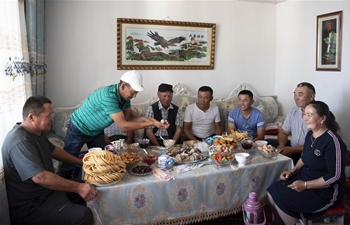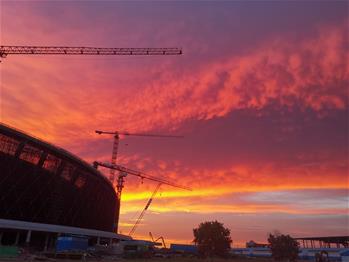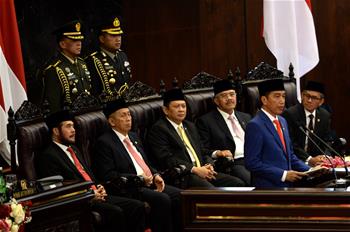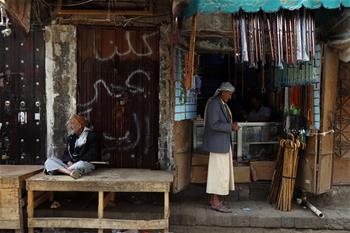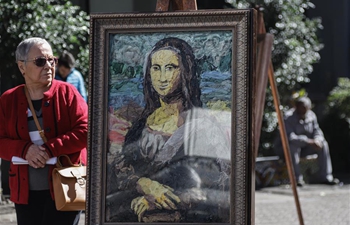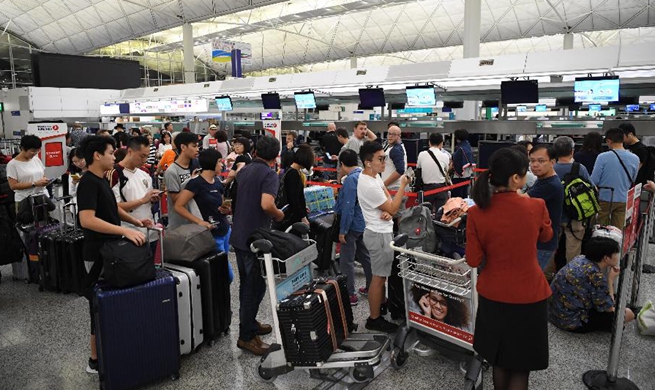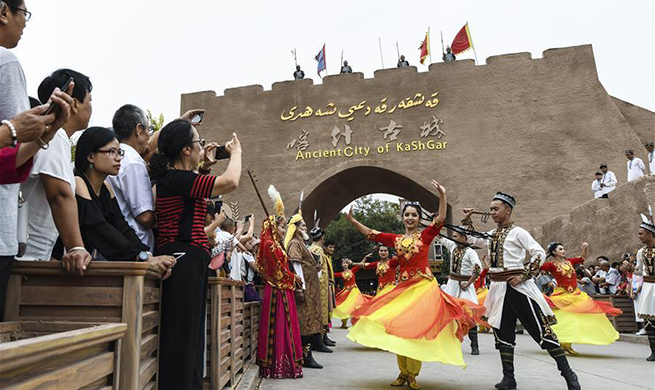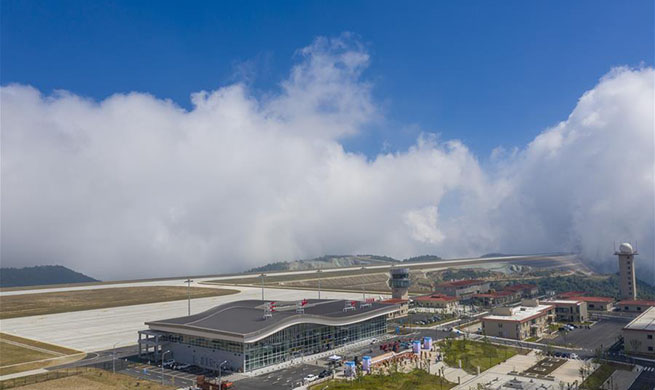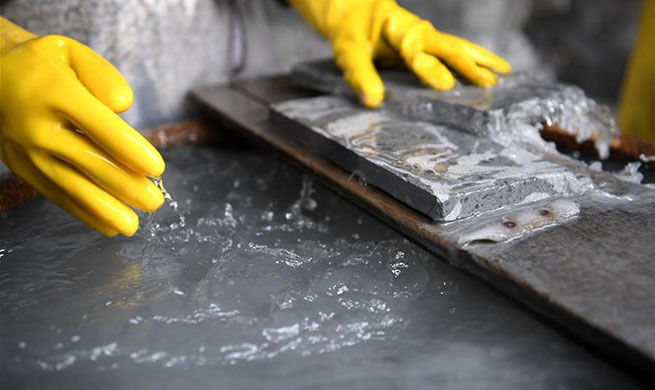BEIJING, Aug. 16 (Xinhua) -- Museum lovers in Beijing now have a unique destination to add to their "must-see" list: a wonderful evening tour at the National Museum of China (NMC).
Starting July 28, the museum decided to extend its opening hours to 9 p.m. on Sundays.
"The museum looks more solemn and mysterious in the dim light of the night, which is especially fascinating to me," said Liu Qing, a 28-year-old woman working in Beijing. She took part in a NMC night tour on July 28.
Fewer visitors and the cooler weather at night are also major pluses for her.
FLOURISHING NIGHT ACTIVITIES
Nighttime tours and activities are becoming increasingly popular in China, as rising daytime temperatures are dampening the enthusiasm for visiting popular tourist spots and other attractions.
According to statistics from Ctrip, China's largest online travel agency, group tours, admission tickets and other excursions during the nighttime have surged by 60 percent since summer began. During the last two weeks of July, bookings of nighttime events soared by over 100 percent compared with the first two weeks.
Aside from museums, a number of tourist attractions across China have also launched night tours. For example, the Shanghai Wild Animal Park launched a night safari program in August.
Qin Xuan, a 24-year-old graduate student, took part in a special night cruise on the Yangtze River in Wuhan, central China's Hubei Province. The passengers boarded a 20th-century design cruise ship, where a drama set in the 1920s was performed, to appreciate the night view of the river and immerse themselves in the atmosphere of the old days.
Qin wore a traditional qipao on the cruise. "It felt like traveling back in time and becoming part of the story," she recalled. "A light show on the river banks also made the trip more pleasant compared with the daytime."
BOOMING NIGHT ECONOMY
"Apart from night visits to tourist attractions, nighttime consumption still has great potential for growth," said Xu Guangjian, a professor from the School of Public Administration and Policy of the Renmin University of China.
Many Chinese cities, especially metropolises like Beijing, Tianjin and Shanghai, have rolled out plans to support nighttime consumption.
According to a statement issued by the Beijing Municipal Commerce Bureau, the city is focusing on building its first four iconic nighttime economy circles, including Dashilan in Qianmen, Sanlitun, Guomao in the CBD area and Wukesong.
A book store and most restaurants in Wukesong Arena, a commercial district located in Beijing's Haidian District, have extended opening hours by two hours to midnight, to facilitate nighttime consumption.
"We have so many young customers who come for exercise, entertainment and dinner after work. It's essential to extend business hours," said Kang Junchao, head of the Brand Marketing Department of the Wukesong Arena.
To facilitate residents' travel at night, Beijing has extended the running hours of two subway lines on Friday and Saturday, requiring the last train to depart after 12 o'clock at night since July 19. Shanghai will add more parking spaces, taxi waiting areas and late-night bus services.
"The development of the nighttime economy is a systematic project, which involves market supervision, environmental protection, transportation and other aspects. The government should be a service provider to address the concerns of consumers and nighttime businesses," Xu said.




